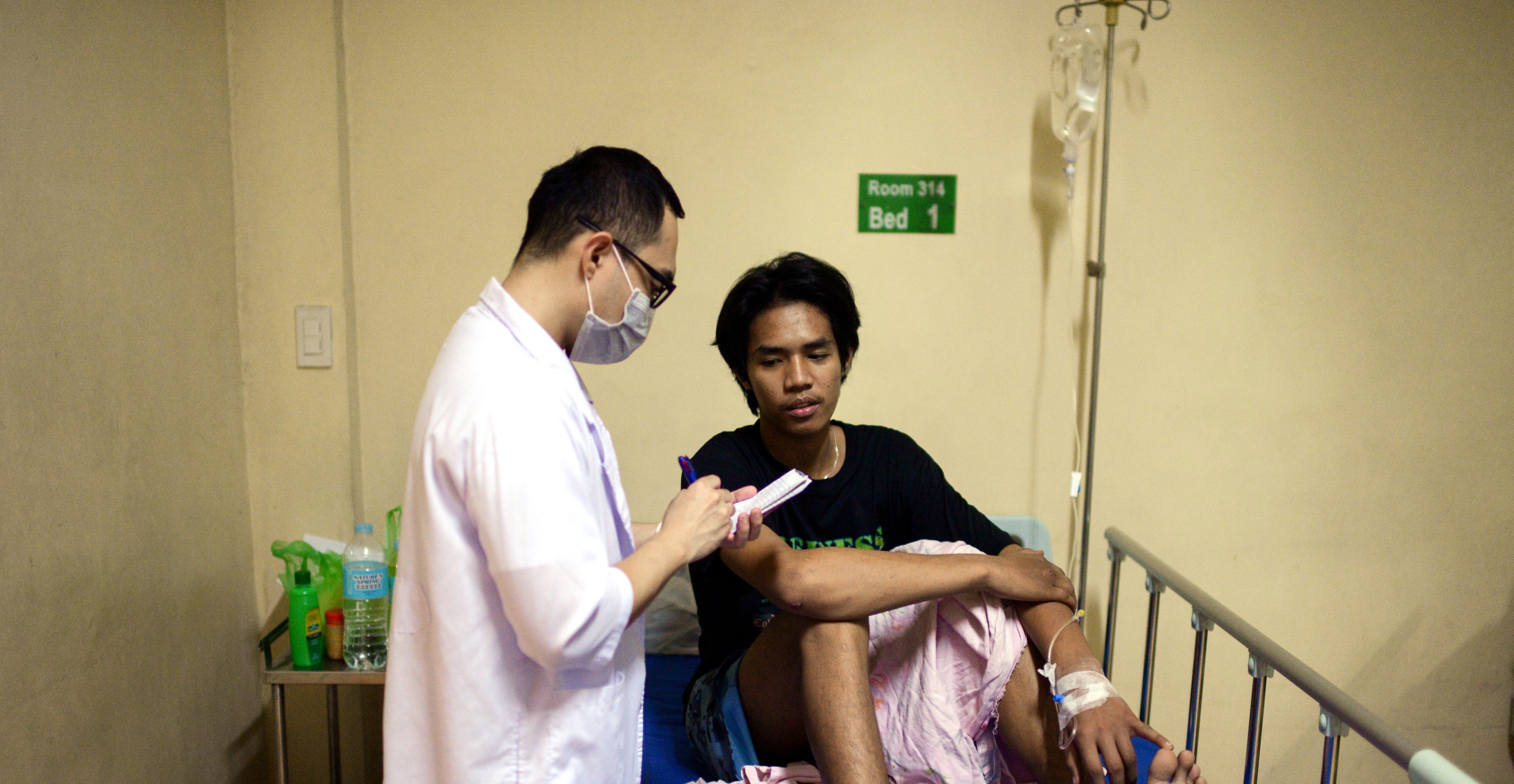COVID-19: What you need to know about the coronavirus pandemic on 17 January

New entry requirements have been introduced in Beijing as a result of COVID-19. Image: REUTERS/Tingshu Wang
Listen to the article
- This daily news round-up brings you a selection of the latest news and updates on the COVID-19 coronavirus pandemic, as well as tips and tools to help you stay informed and protected.
- Top stories: COVAX deliver one billion COVID-19 vaccine doses; Beijing introduces new entry rules; US CDC adjusts mask-wearing guidance.
1. How COVID-19 is affecting the globe
Confirmed cases of COVID-19 have passed 328.1 million globally, according to Johns Hopkins University. The number of confirmed deaths has now passed 5.53 million. More than 9.65 billion vaccination doses have been administered globally, according to Our World in Data.
The French parliament has given final approval to the government's latest COVID-19 measures, including a vaccine pass.
Nepal has begun giving COVID-19 vaccine booster shots. It comes as daily confirmed cases jumped by 4,961 on Sunday - the biggest 24-hour increase in more than six months.
The number of COVID-19 patients in Irish hospitals has fallen week-on-week for the first time since the Omicron variant drove cases to record highs.
Australia's daily COVID-19 cases fell below 100,000 on Sunday for the first time in five days.
Thailand has reported its first death from the Omicron COVID-19 variant, a health official announced yesterday.
England has extended its COVID-19 vaccine booster programme to include 16- and 17-year-olds.
The US Centers for Disease Control and Prevention (CDC) has revised its guidance for Americans on wearing masks to protect against COVID-19, recommending using 'the most protective mask you can' while stopping short of advocating nationwide usage of N95 respirators.
Iran has reported its first three deaths from the Omicron COVID-19 variant.
The Philippine health ministry confirmed the local spread of the Omicron COVID-19 variant around Manila on Saturday, as infections hit a record high for a third straight day.

What is the Global Alliance for Social Entrepreneurship?
2. COVAX shares one billionth COVID-19 vaccine dose
COVAX, the global vaccine-sharing facility - has delivered 1 billion COVID-19 vaccine doses, one of the organizations which manages it said on Saturday.
Supplies to poorer nations have long been limited because of lack of vaccines, as wealthier states secured most of the doses initially available from December 2020.
But in the last quarter shipments have exponentially increased, allowing COVAX to reach the milestone of 1 billion doses shipped to 144 countries, said Gavi, which co-leads the programme alongside the World Health Organization (WHO).
Despite the recent surge in deliveries, vaccine inequity remains high. The latest WHO data shows 67% of the population in richer nations have been fully vaccinated, compared with only 5% in poorer nations. Over 40% of the world's population has not yet received a first dose.
Gavi is seeking more funds to reach the WHO's goal of vaccinating 70% of the population in poorer nations by July.
3. Beijing tightens entry rules after Omicron case
Beijing will require travellers to get a COVID-19 test within 72 hours of arrival in the Chinese capital, state media announced on Sunday, a day after the city reported its first Omicron case and as it readies to stage the Winter Olympics next month.
On Saturday, the city reported the first local infection of the highly transmissible Omicron variant, involving a person who had visited multiple malls and restaurants in the previous 14 days. The person had not left the city since the start of this year
The new rule, effective from 22 January to end-March, is aimed to help with early detection of Omicron, which is surging globally, and the control of epidemic risks, Beijing Daily, a government newspaper, said on its official social media account.
Already, the capital city requires inbound travellers to take a COVID-19 test within 48 hours of departure for the city and have a green code on the city's health tracking app.
Don't miss any update on this topic
Create a free account and access your personalized content collection with our latest publications and analyses.
License and Republishing
World Economic Forum articles may be republished in accordance with the Creative Commons Attribution-NonCommercial-NoDerivatives 4.0 International Public License, and in accordance with our Terms of Use.
The views expressed in this article are those of the author alone and not the World Economic Forum.
Stay up to date:
COVID-19
Forum Stories newsletter
Bringing you weekly curated insights and analysis on the global issues that matter.
More on Health and Healthcare SystemsSee all
Mille Sofie Stenmarck Korsgaard and Daniel Holth Larsen
November 20, 2025






